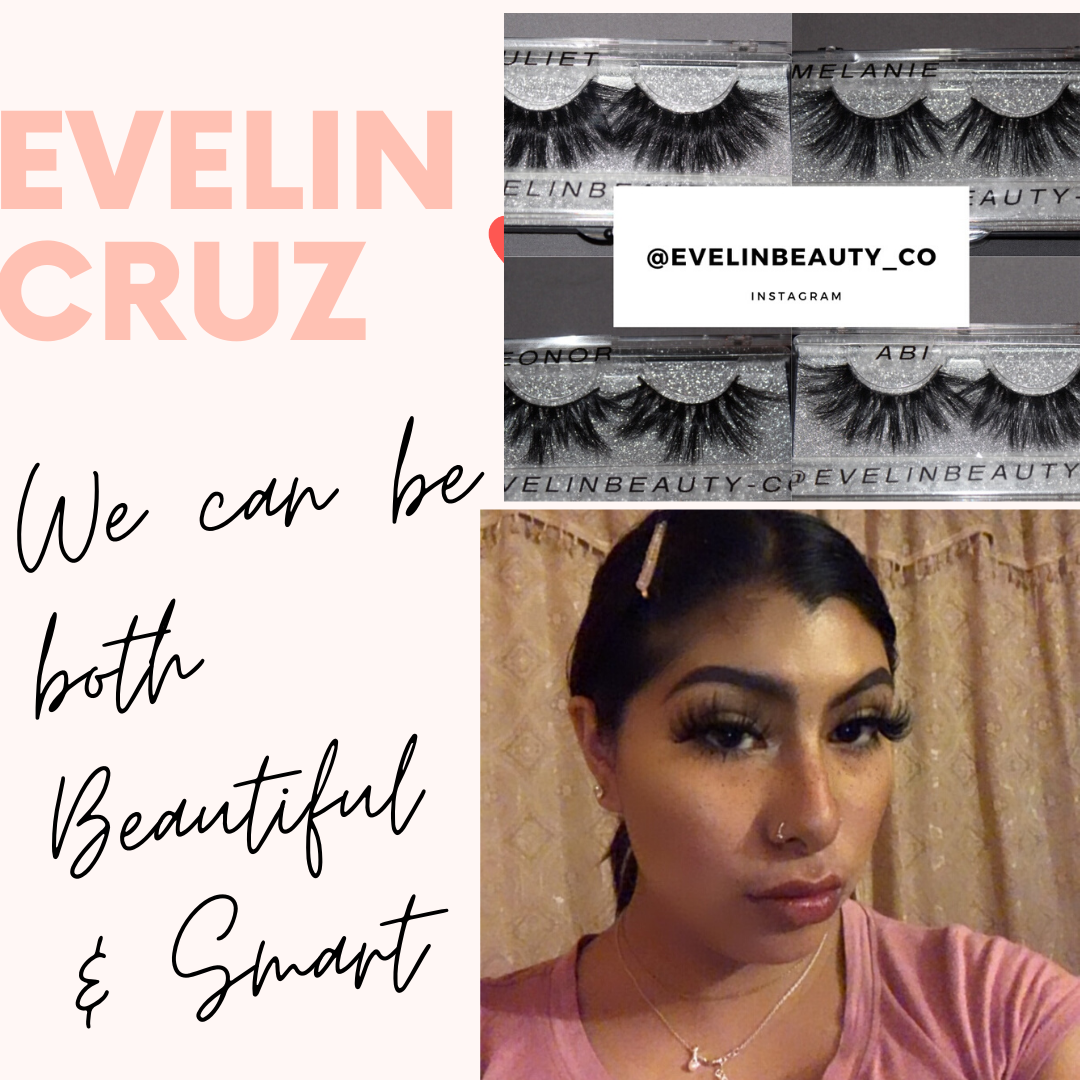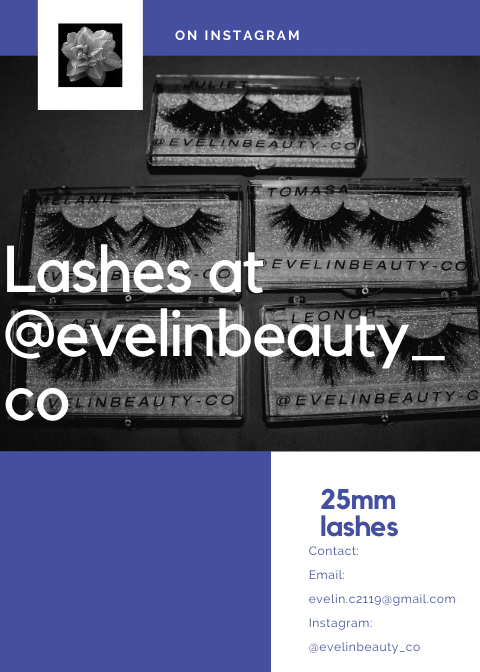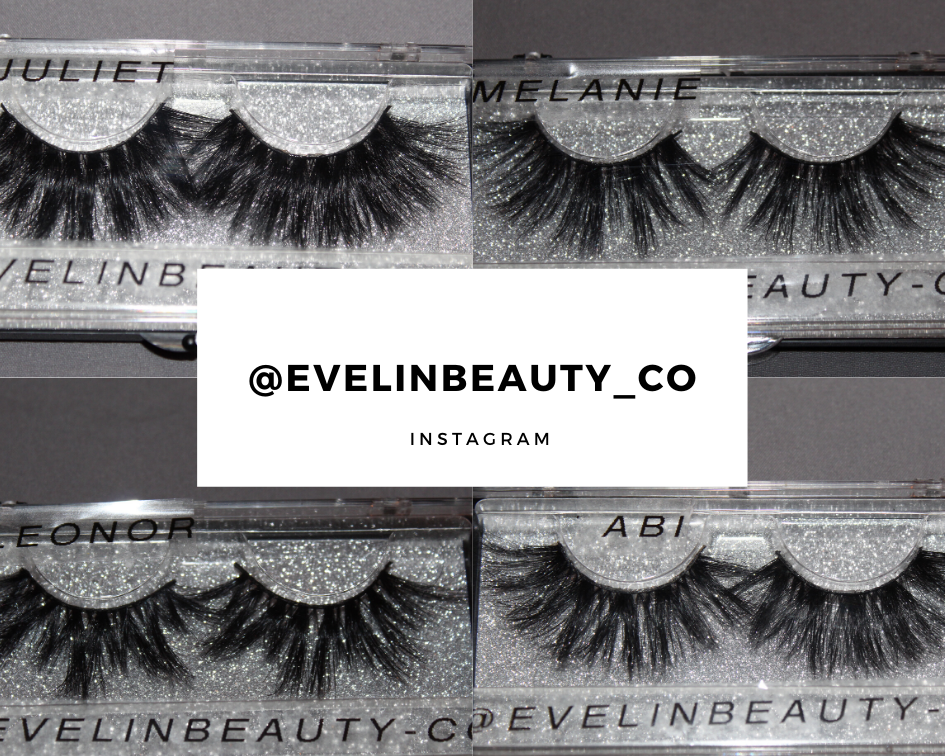
I started being interested in makeup in 7th grade when my cousin came from Los Angeles to live with us. Her mom was not ok with her being herself. She’s transgender and she always dressed the way she wanted to – in heels and dresses. There’s that stereotype: when you’re a “guy,” you’re not allowed to wear dresses. Her mom didn’t want to deal with that difference. She didn’t want her around so my mom and my dad took her in: “We’re going to treat her like she’s our child,” they said. “We’ll take care of her.”
My family is from Monterrey, México. My mom took care of me, my brother and my two cousins all by herself. She was really close to my cousin – she raised her like she was her own child. My cousin and I were really close, too. I’ve known her since I was a baby. I was her favorite – she’d give me extra candy, she’d play with me the most.
We moved to the US when I turned 3 years old. My mom, my brother and I went to Los Angeles first where my auntie and my cousin lived. After a few months, we came here to the Bay Area to live with my dad. Richmond is where I am from and I feel like that’s part of my identity because it’s where I grew up. It’s low-income, I hear shootings. But I’ve lived here since I was five, so it’s nothing new to me. And I am not ashamed of where I grew up.
My cousin was 17 when she came to live with us – I was about to be in middle school. She’d do her makeup and I’d always try to copy her. Putting on makeup is a way to express yourself, and I just loved how she could do any type of look. It was so cool! She could make herself look like someone else, she was just so talented. It was so inspiring to think I could potentially be like her, so good at makeup. We became really close because of that, partly because she hasn’t been accepted by a lot of people.
When I got to high school, I started having different interests besides being a makeup artist, like getting involved with social justice. I began selling eyelashes as a way for me to give love to that passion while doing other things. My eyelash business is called Evelin Beauty Co. I also started the business because I needed money. When you come from a low-income house, you’re expected to do more to help your family. You want to do it. I was inspired by the idea that I could not only make money for myself, but I’d also be able to give money to my family. That’s a big part of why I’m doing it.

I buy the eyelashes from China and they get shipped here. From there, I put my own brand on them – I’m working on getting a custom case. Right now, it’s mostly my friends who buy them. They know that I know a lot about makeup and that I wouldn’t sell something that’s not quality. They buy them and tell their friends. I also sell them on Instagram (you can check them out at @evelinbeauty_co!!). It’s so fun for me to do! It combines all the parts of who I am.
“I want to use my business to send the message that women can be whoever they want to be, no matter how they look.”
I can be in a rally but I can also do makeup. Sometimes I feel like if you look too girly, if you dress too nice, you’re not taken seriously. People don’t understand who you are, that you could be dressed hella nice but still have an opinion.
A lot of times, the people who are speaking up and making decisions – the bosses – are male. In the movies and TV, the woman who dresses nicely – in a dress or a skirt – or who wears pink is the dumb one. She doesn’t know what she’s talking about. She looks out of place. Then, you see a woman with a suit, with her hair up, in simple makeup and somehow she looks better. In some ways, women have to imitate men in order to be taken seriously.
In my experience, other students didn’t take me seriously at first because I was wearing makeup and looked girly. Before my cousin came to live with us, I was more like a tomboy and I would play sports all the time. Most of my friends are boys, so when I started doing makeup, a lot of people saw me as a “girly girl.” But when it comes to debating, speaking up and playing my favorite sport, which is soccer, it was me the whole time. I would speak up about what I believe. I remember in this history class there was a debate and I was one of the first people to talk. Everyone was like, “Oh wow, she’s so passionate and knows what she’s talking about!” I love the feeling of proving to someone that I know what I’m talking about even though I might not look like I do. People didn’t expect it: “I didn’t even know she was into this stuff.”

Men get more opportunities, they’re just supposed to be better. But I don’t feel like that’s the case. I feel like women also have a voice. Even though we’re not men, we still have our own opinions. We view the same thing in different ways. People think it’s a man’s world. But it would be nothing if there were no women.
“I like that I’m able to show people that there are different types of women. I play different kinds of roles – I’m a business owner, I like to dress up, I’m an activist and I love playing soccer, but I’m one person. I am Mexican, I wasn’t born here. I’m dark-skinned. I am a woman. I’m low-income. I’m breaking down prejudices on different sides, acting as a bridge between communities.”
There are so many things I want to do, but the most important thing is to educate young people. They’re the future – the next thing you know, they’ll be running for president. If they’re educated the right way, then they’ll grow up and express themselves and help other people out, educate other people. Opportunities, resources, high quality education: these are really, really important. I’m starting a photography internship and am taking a design and printing class through a program called Girls Garage in Berkeley. We’re making flags that fight for an issue that we choose. Mine is dyslexia because I have it and that’s a big part of me, too.
So I’m designing a flag that describes dyslexia because a lot of dyslexic people feel ashamed. When I did my research on dyslexia, I learned that 35% of dyslexic young people drop out of high school and 70% of the young people in juvenile hall have dyslexia. But even though our brains have to think at least 5 times harder than a normal brain, there are still good things about having dyslexia. For example, I learned that 35-40% of dyslexic people are entrepreneurs. So what I want my flag to show is that we can still succeed even though it’s hard. I don’t want dyslexic people to be ashamed.
I’m also participating in BLING – yli’s youth philanthropy program. Before I came to BLING, I was very shy. I didn’t really used to say what I was thinking, but when I started going to BLING, my friends would push me: “Go talk! Say something!” From there, I started sharing my opinion, and really came out of my comfort zone more. Last year, I was the emcee for the BLING end-of-year celebration. I was sooooo nervous, but it helped me so much!
Speaking up is all I want to do now. When we’re doing the interviews with the new grantees, I want to be the first one to talk, or if we’re in front of the biggest group – give it to me! I want to be a person who is not afraid to speak up no matter what position I am in.
